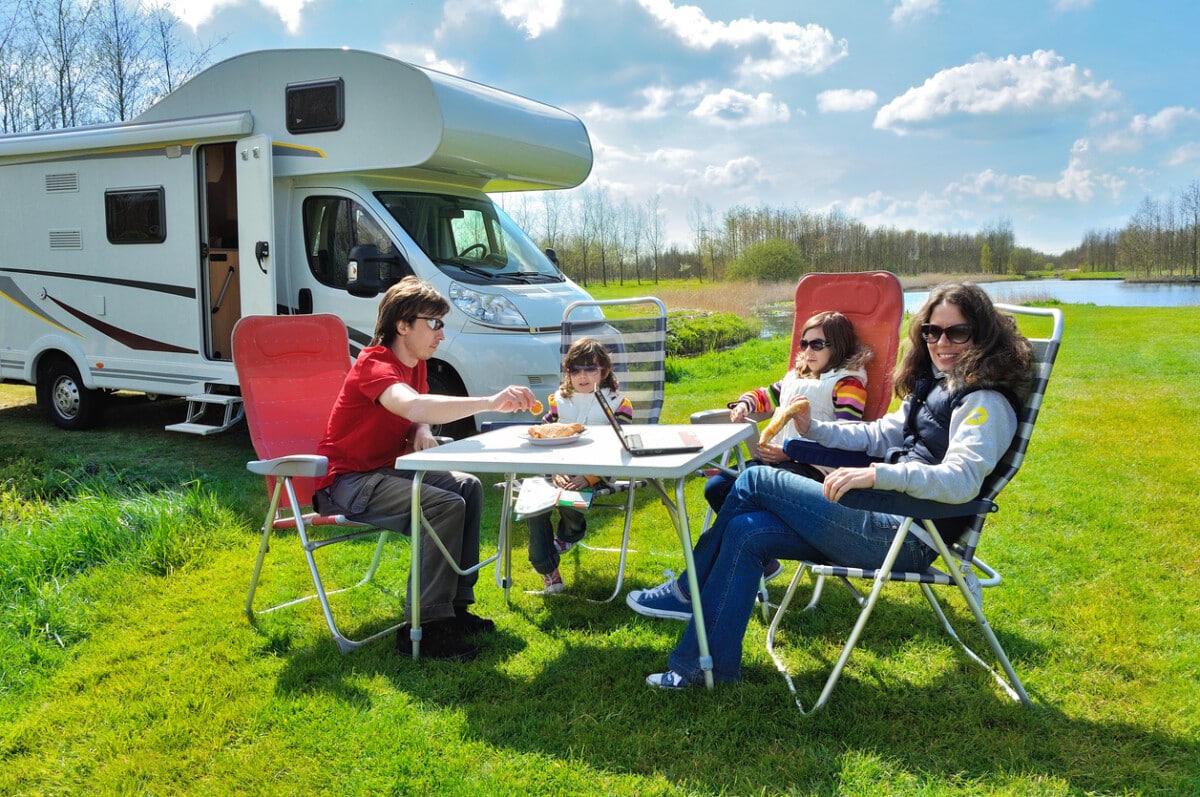Wander With Wonder – Discovering Wow Moments Around the World or Across the Street
Are you ready to hit the road in your RV? Have fun and be safe with these four top tips for safe RV travel. Enjoy the RV lifestyle!
Embarking on an RV adventure offers an incredible sense of freedom and exploration. The open road promises new landscapes and unforgettable memories. But you can’t get so excited that you forget about safety. You must remain especially vigilant when driving on highways.
Interstate highways can present unexpected challenges that require careful planning and sharp awareness. So, whether you’re a seasoned traveler or a novice, prioritizing safe practices ensures your journey remains as enjoyable as it is secure. Here are our top four tips for safe RV travel on highways.
You can enjoy the freedom of the open road when you travel with an RV. Photo by JaySi via iStock by Getty Images
Steps to Take if You’re Involved in a Highway RV Accident
By taking note of the following four tips for safe RV travel on highways, you can significantly reduce the risk of an accident. However, if you find yourself in an accident, you should be prepared by knowing what actions to take – especially as highway accidents can be more serious than those on other roads.
After all, more vehicles travel at high speeds, and the roadways are filled with larger vehicles like semi-trucks. So, here’s what to do:
Stay Calm and Assess Injuries. Check yourself and your passengers for injuries, then call 911.
Move to Safety. If possible, move your RV to the shoulder or a safe area.
Warn Other Drivers. Use hazard lights, flares, or warning triangles.
Document the Scene. Take photos of the scene and exchange information with other parties involved.
Seek Medical Help. Even if there are no visible injuries, get checked by medical professionals, as some injuries may not be immediately apparent.
Seek Legal Representation. Contact a lawyer for guidance. You may be able to pursue compensation. Just make sure you find a lawyer with experience in your specific type of accident. For instance, look for competent legal representation after a semi-truck accident who has handled similar cases before.
When on the open road, you must be aware of other traffic, particularly, large busses and trucks. Photo by RomanBabakin via iStock by Getty Images
Now, let’s dive into those tips for staying safe.
1. Perform Proactive Maintenance (Especially for Long-Distance RV Trips)
Regular maintenance is essential for smooth and safe RV journeys. Start by checking tire pressure and tread to prevent blowouts. Inspect all fluid levels, including engine oil, coolant, and brake fluid. Ensure your battery is fully charged and free of corrosion. Test lights, signals, and brakes to confirm they work correctly.
It could also be worth scheduling a professional inspection before long RV road trips; it can reveal hidden issues that might cause trouble on the road.
2. Plan Your Route to Avoid High-Risk Areas
Effective route planning is key to avoiding high-risk areas and ensuring a safe journey. So:
Utilize GPS apps designed for RVs that provide information on low-clearance bridges, weight limits, and narrow roads. We recommend using RV Life Pro Trip Wizard, which helps you find the best route for your RV.
Check weather forecasts along your route to steer clear of severe conditions.
Monitor traffic updates for accidents or construction zones that could cause delays or hazards, adjusting your path as needed.
3. Know How to Drive in Different Weather Conditions
Driving an RV in various weather conditions requires adaptability and caution. In the rain, reduce speed to prevent hydroplaning and maintain a safe following distance.
Use low-beam headlights during foggy conditions for better visibility. Install tire chains on snowy or icy roads and avoid sudden maneuvers. Keep both hands on the wheel during high winds and reduce speed to maintain control.
Understand the best practices for driving in various weather conditions. Photo by Ali Çobanoğlu via iStock by Getty Images
4. Leverage AI for Safer Highway Journeys
Artificial intelligence can enhance highway safety for RV travelers by predicting potential hazards and optimizing driving strategies. Modern RVs with AI-driven systems can detect obstacles, monitor driver fatigue, and suggest corrective actions in real-time.
Advanced features like lane-keeping assistance and adaptive cruise control adjust to traffic conditions, reducing accident risks. As AI technology evolves, these smart systems promise even greater precision and reliability, making highway travel safer and more efficient.
Newer RVs and tow vehicles include AI features, such as lane assist features and adaptive cruise control that help keep you safe on the highway. Photo by Larry Crain via iStock by Getty Images
Setting Out on Your RV Road Trip
Remember, safety should never take a backseat on your RV adventures. We also recommend that you always keep a safe distance behind other vehicles, keep your speed well below the speed limit, and only travel three or four hours daily. Driving an RV takes extra brain power so that you will get more tired than on a traditional car trip. Stay vigilant and follow these tips to enjoy the freedom of the open road while keeping yourself and others safe. Check out our related articles and guides for more resources and information on safe RV travel. Happy travels!
